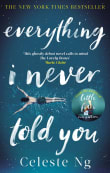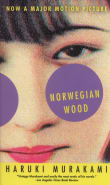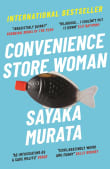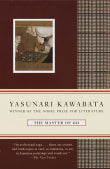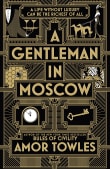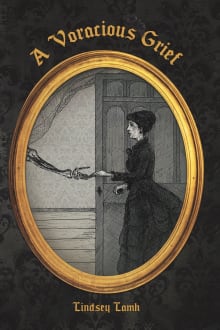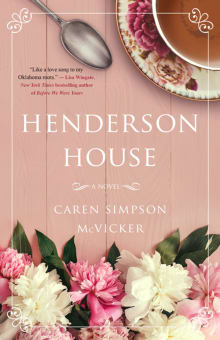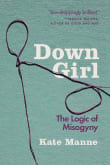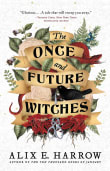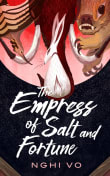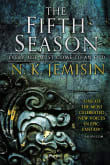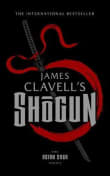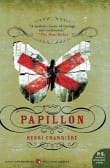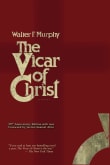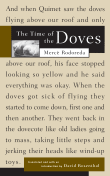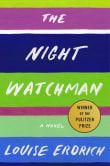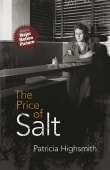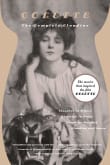Pachinko
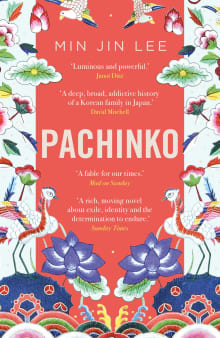
Book description
* The million-copy bestseller*
* National Book Award finalist *
* One of the New York Times's 10 Best Books of 2017 *
* Selected for Emma Watson's Our Shared Shelf book club *
'This is a captivating book... Min Jin Lee's novel takes us through four generations and each…
Why read it?
17 authors picked Pachinko as one of their favorite books. Why do they recommend it?

Pachinko is a compelling novel that deals with many issues faced by a Korean family living in Japan over four generations of the 20th Century. What stood out the most for me while reading was how much I learned about Korean history in this work of historical fiction. For instance, I had no idea that Koreans were treated so badly by the Japanese and I was completely ignorant of Korean’s troubling history over the years the author covered.
First Korea was occupied and controlled by Japan for many years and later the country was divided into two: North and South…

Pachinko is one of my top book picks because it weaves together the struggles and resilience of multiple generations in a way that feels deeply human. The story of Sunja and her family’s fight for dignity and survival, despite the odds, is both heartbreaking and inspiring. I’m drawn to books that explore identity and belonging, and Pachinko does this with such honesty and depth, making it a powerful and unforgettable read.

This book is a classic which I read for the second time. It's an epic tale of four generations of Koreans making their way in Japan, where they are regarded as inferior. Their family love and ambitions push them onward. Min Jin Lee illuminates a difficult history in this beautifully written book, #22 on the NY Times Best 100 list.
If you love Pachinko...

This heartwarming, multigenerational drama about the Korean community in Japan swept me into another time and place. Born and raised in a poor fishing village in Japanese-occupied Korea, Sunja makes an impulsive decision in the pursuit of love that transforms the trajectory of her life.
Thoughtful, resilient, and fiercely independent, Sunja was a relatable character whom I desperately wanted to see thrive. I felt her heartache when she left her beloved Korea and shared her indignation at the discrimination she and her family experienced in Japan. Expertly crafted and keenly observed, Pachinko shows us how history and politics shape the…
From Elizabeth's list on immersion into world history and culture.

Well, apart from the fact that she lives in Harlem, where I spent many years, I am obsessively enthralled with South Korean History…always marveling at its meteoric rise from being one of the poorest countries in 1953 to today being a super economy. I believe they have some of the best writers I have ever read.
From C.C.'s list on World books that introduce different cultures.

I loved the book because it introduced me to Korean culture and the historically less-than-fair treatment of Koreans living in Japan. It’s a family saga that spans five generations, has multiple protagonists, and has an omniscient narrative. I loved how the writer made me see into the characters’ heads and how their thoughts and actions didn’t always align.
From Rajat's list on race, ethnicity, and belief system collisions.
If you love Min Jin Lee...

I loved this book because it shows generations of family sacrifice and how the decisions we make in our lifetime can live on for decades after we pass.
I rushed to read this book every evening and had to pull myself away. It was so amazing to me that this author could weave through years and years of family history in a clear, coherent, and powerful way.
From Kern's list on family drama, sacrifice, and how beautifully messy a family can be.

I picked up Pachinko to learn more about Korean culture and the ways twentieth-century Koreans suffered at the hands of the Japanese—bookending what I knew about the Holocaust.
I finished it with a vastly fuller sense of the potential impact of bias in any advanced society. Lee doesn’t hold a mirror directly up to American culture, but there were many times that was the effect for me.
Characters I cared about wrestled with nationality, gender, sexual identity, ambition, and altruism in strongly emblematic ways, but always as fleshed-out individuals whose joys and sufferings grabbed me like they were members of…

This novel illustrates a part of history I had no knowledge of: the story of Korean immigrants to Japan and their families, who are never accepted as Japanese, even after two and three generations.
In some ways, it’s a typical immigration-based epic, but written elegantly and with characters that you truly care about and who you truly want to succeed. I couldn’t put it down until the end.
If you love Pachinko...

Wow! I felt intimately connected to the family depicted in this turbulent but big-hearted saga. I rooted for them at every turn, from their humble beginnings in Korea through their struggles as immigrants in Japan. The world changes dramatically from 1910 to 1989, but despite tragedy, they hold tight to their values of loyalty, hard work, independence, and honesty. Inspiring.
From Betsy's list on taking you all over the world in good company.
If you love Pachinko...
Want books like Pachinko?
Our community of 12,000+ authors has personally recommended 100 books like Pachinko.



